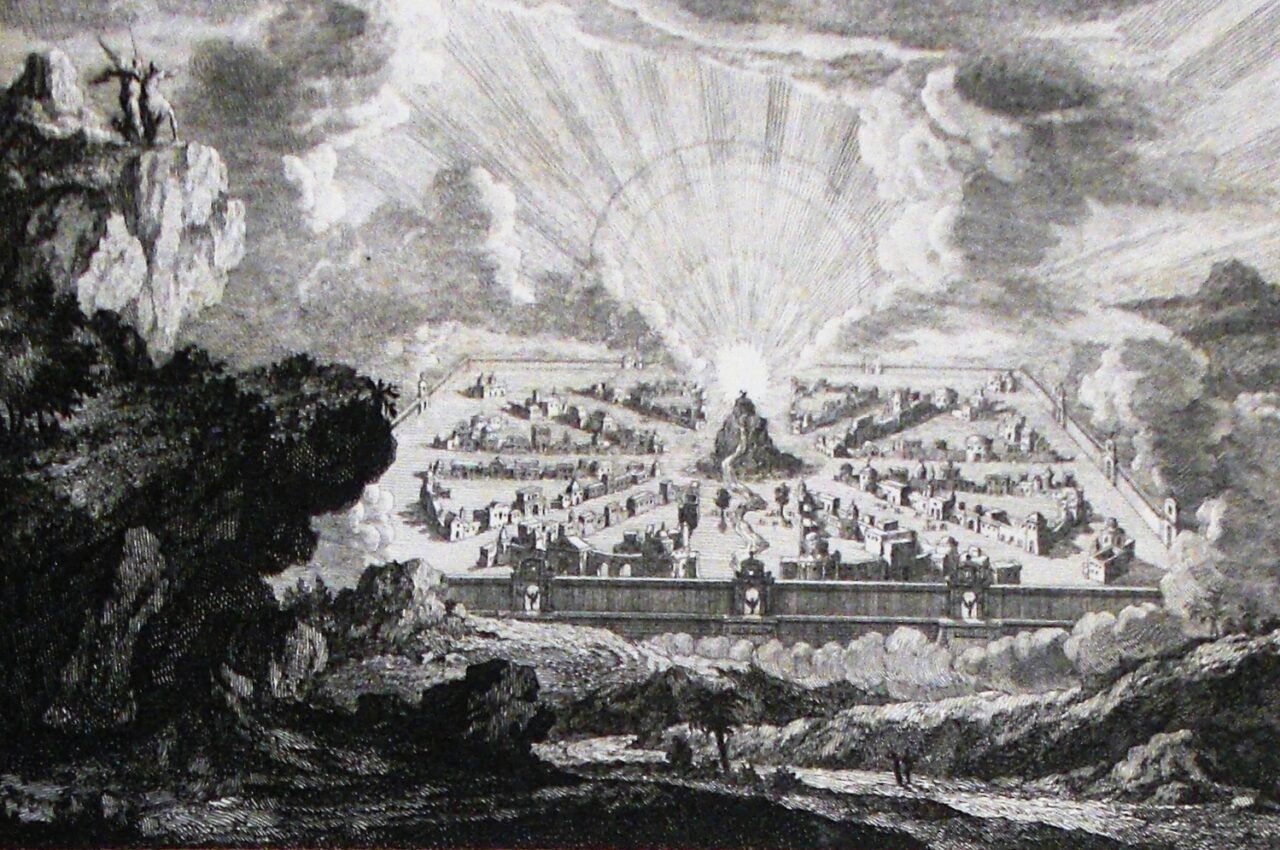This is adapted from a drash Z. S. read last year at Devar Emet Messianic Congregation. A drash is a brief takeaway from the weekly cycle of texts.
This Week’s Readings:
Torah: Deuteronomy 21:10-25:19
Haftarah: Isaiah 54:1-10
Brit Chadashah: Revelation 21:1-4
I recently spoke with a friend in Israel about some issues surrounding the aliyah process, and how terrible Israeli bureaucracy can get. My friend told me, “I think bureaucracy is a curse from G-d. It’s only because of our sins of lying and forging that we need bureaucracy.” I suppose my friend is right. I wouldn’t have to worry about authenticating documents if no one ever lied or forged to get around legal requirements.
Well, today’s Torah portion contains a number of laws that account for the reality of human sin. A rebellious son who does not listen to discipline must be stoned by the men of the city. If a man lies with an engaged woman out in the countryside, the man must be killed. If a man marries two women and loves one but hates the other, he still must give his firstborn son a double portion. Notice: unlike, say, the Ten Commandments, the rules in this parashah presuppose problematic situations: rebellious children, partiality in polygamous relationships, rape, false witness, divorce, crushed genitals. (How did that one happen?) These laws offer solutions to already bad situations. They exist in anticipation of human misbehavior. When people try to subvert the spirit of the law, the legal system expands to spell out more specific scenarios.
But behind all the cynicism of these laws lies another reality: G-d’s presence in our midst. If you read these laws carefully, you will see that they are meant to preserve the sanctity of the people and the land. That’s why a convict’s corpse must not be left hanging overnight, lest the prolonged presence of the hanging corpse defiles the land. The convict is guilty, but that’s not the end of the story. The land is good and requires protection! Similarly, Israelites on the war path must keep a high standard of purity in the military camp, because “Adonai your G-d walks in the midst of your camp.” That means that soldiers defecate outside the campgrounds, and any soldier who has had a nighttime emission must leave the camp to purify himself. Again, all this is for a very good reason: it’s because “Adonai your G-d walks in the midst of your camp, to rescue you and to give your enemies over to you.” So many of these laws are for the preservation of the good. Even though they presuppose the brokenness of humans, they also presuppose the worthiness of G-d. From these laws, we see that G-d lives among us, and we need to preserve the holiness of the place of G-d’s dwelling.
In our Haftarah portion, G-d goes above and beyond the expected behavior of a husband to his estranged wife. He calls her back, reunites with her, saying, “you will forget the shame of your youth… For your Maker is your husband… the Holy One of Israel is your Redeemer… In a surge of anger I hid My face from you a moment, but with everlasting kindness I will have compassion on you.” This kind of love goes beyond the legal duties of a husband in our Torah portion. G-d’s love for us and desire to be with us transcends the cynicism of the law and overcomes our worst imperfections. G-d sets the example of perfect, unconditional love, sharing with us His presence, revealing the very good that the Torah enjoins upon us to preserve and hold dear.
In the Brit Chadashah portion, we learn that G-d brings in an entirely different reality. “I saw a new heaven and a new earth; for the first heaven and the first earth had passed away, and the sea was no more.” The New Jerusalem comes “down out of heaven from G-d, prepared as a bride adorned for her husband,” and something like the bat qol announces: “Behold, the dwelling of G-d is among men, and He shall tabernacle among them. They shall be His people, and G-d Himself shall be among them and be their G-d. He shall wipe away every tear from their eyes, and death shall be no more. Nor shall there be mourning or crying or pain any longer, for the former things have passed away.” The former things have passed away! G-d reembraces us as His bride, and His love makes us—and all creation!—new and perfect in Him.
In spite of our brokenness and ineptitude, G-d loves us faithfully. We defiled the land G-d gave us, failed to keep His Torah, abused our fellow man, and then had the chutzpah to offer sanctimonious sacrifices at the Temple. (No wonder G-d left the Temple!) We ought to be ashamed of ourselves! But it isn’t about us. It’s about G-d, and He has gone far beyond the requirement of the law to demonstrate His goodness to us. G-d has tabernacled among us, with the coming of Yeshua and the indwelling of the Holy Spirit. We must actively respond to G-d’s perfect love for us… How? It’s simple! We embrace G-d back, rejoicing and in every moment finding our satisfaction in Him!


Leave a Reply